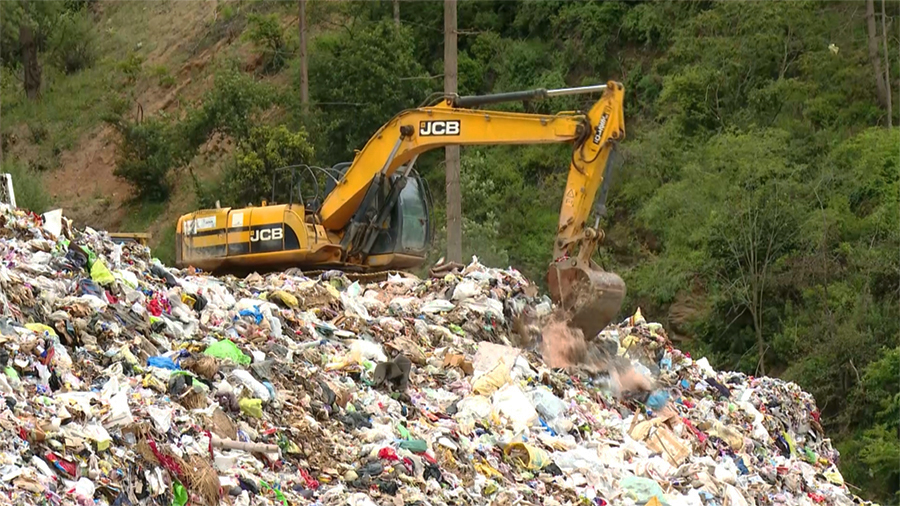 Thimphu has taken its first practical step to stop dumping and start transforming its organic waste. For this, a new composting facility at the Memelakha landfill began operations today, using a Japanese aerobic method to convert wet waste into organic fertiliser. Though modest in scale, the initiative signals a long-awaited shift from landfill reliance to waste recovery.
Thimphu has taken its first practical step to stop dumping and start transforming its organic waste. For this, a new composting facility at the Memelakha landfill began operations today, using a Japanese aerobic method to convert wet waste into organic fertiliser. Though modest in scale, the initiative signals a long-awaited shift from landfill reliance to waste recovery.
 Today, organic waste such as vegetable peels, food scraps and market waste makes up more than half of all rubbish sent to landfill. Every day, over 30 tonnes of organic waste are dumped at the Memelakha landfill.
Today, organic waste such as vegetable peels, food scraps and market waste makes up more than half of all rubbish sent to landfill. Every day, over 30 tonnes of organic waste are dumped at the Memelakha landfill.
Until now, the organic waste has simply piled up, producing harmful leachate and methane gas. Leachate, a toxic liquid from decomposing waste, has long threatened the valley’s soil and water, while methane emissions accelerate climate change.
 But the new compost plant will change that. Inside the new composting plant, a mechanical mixer churns a heap of rotting vegetables and soil.
But the new compost plant will change that. Inside the new composting plant, a mechanical mixer churns a heap of rotting vegetables and soil.
The mixture is part of a carefully measured process, seed compost, brown sugar, rice husk and water added to trigger fermentation.
 Over time, natural heat builds up, breaking down the organic matter into rich compost without releasing foul odours or toxic runoff.
Over time, natural heat builds up, breaking down the organic matter into rich compost without releasing foul odours or toxic runoff.
“Usually, around 3,000 to 6,000 litres of leachate are produced in the Memelaka landfill site every day. So, this compost plant will help actually reduce the wet waste going to landfill, and in turn, significantly help reduce the leachate in the landfill site,” said Sonam Wangchuk, Chief Environment Officer, Thimphu Thromde.
According to the Thromde Office, the compost produced will eventually be sold affordably, reducing reliance on chemical fertilisers and supporting Bhutan’s goal of becoming a 100 per cent organic nation by 2035.
They added that residents’ support will contribute to the success through the proper segregation of waste at source.
“One difficult thing that we face when the waste comes in a mixed form is that we have to segregate here again, so we would like to request every individual to be conscious of their waste and then be responsible for how to dispose of their waste,” said Sonam Wangchuk, Chief Environment Officer, Thimphu Thromde.
The composting plant was supported with approximately USD 47,000 or over Nu 4 M funding from the Institute for Global Environmental Strategies.
Officials said this is a vital step towards a cleaner and greener Thimphu, where waste is no longer buried, but returned to the earth as nourishment.
Namgay Dema
Edited by Kipchu









